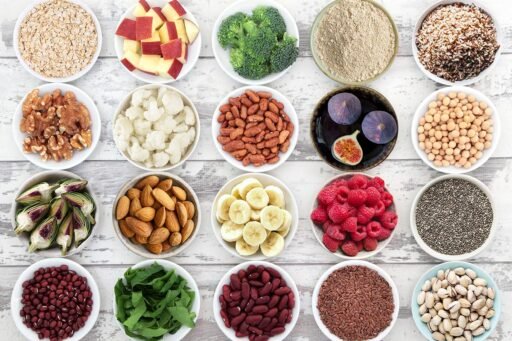Juice cleanses have gained significant popularity in the wellness community, with many people turning to fruit and vegetable juices in an effort to detoxify their bodies, boost energy, and shed pounds. While these cleanses are often marketed as a way to rid the body of toxins and improve overall health, it’s essential to separate fact from fiction to understand whether juice cleanses are truly effective for detoxification.
In this article, we’ll explore the science behind juice cleanses, their potential benefits, risks, and whether they can truly help detox your body.
What is a Juice Cleanse?
A juice cleanse typically involves consuming only freshly pressed fruit and vegetable juices for a set period, ranging from a few days to a week or more. The goal is to provide the body with concentrated nutrients while abstaining from solid food, theoretically allowing the digestive system to “rest” and focus on eliminating toxins.
These cleanses are often marketed as a way to detoxify the body, cleanse the liver, improve digestion, and jumpstart weight loss. Juice cleanse programs usually consist of a variety of juices made from ingredients like kale, spinach, cucumber, celery, beetroot, lemon, and apple, among others.
How Juice Cleanses Work (or Don’t Work)
- The Body’s Natural Detoxification System Before diving into whether juice cleanses are effective, it’s important to understand that your body is already equipped with its own detox system. The liver, kidneys, digestive system, and even the skin all work continuously to filter and eliminate toxins from the body. These organs do not need a juice cleanse to function; they do so naturally, as long as you’re supporting them with a healthy diet and lifestyle.
The liver is the body’s primary detox organ, breaking down and removing toxins from the bloodstream. The kidneys filter waste from the blood and excrete it through urine, while the intestines and digestive tract eliminate waste and toxins through bowel movements.
In essence, your body is already detoxifying itself every day. This means that while juice cleanses might give you a temporary feeling of being “clean,” they don’t necessarily provide any additional detox benefits beyond what your body already does.
- The Nutrient Density of Juices Juice cleanses can provide a rich source of vitamins, minerals, and antioxidants from fresh fruits and vegetables. Ingredients like kale, spinach, and beets are nutrient-dense and can support overall health. However, the key question is whether consuming these nutrients in juice form is more beneficial than eating the whole food.
The process of juicing removes the fiber from fruits and vegetables, which is a crucial component for healthy digestion and detoxification. Fiber helps regulate bowel movements and aids in the removal of waste from the digestive system. Without fiber, juices may not have the same cleansing effect as consuming whole fruits and vegetables, which provide more sustained energy and digestive support.
- Calorie Restriction and Temporary Weight Loss Juice cleanses typically involve a significant calorie restriction, as they provide fewer calories than a balanced, whole-food diet. This can lead to rapid weight loss, primarily from water weight and glycogen stores, rather than fat loss. However, this weight loss is usually temporary, and most people regain the weight once they resume normal eating habits.
While you may feel lighter or “cleansed” after a juice cleanse, this sensation is often due to reduced bloating and water retention rather than a significant reduction in body fat.
- Blood Sugar Levels and Juice Cleanses Many commercially available juices, especially those made from fruits like apples, pineapples, and oranges, can be high in natural sugars. This can cause spikes in blood sugar, which may lead to energy crashes and hunger. Without the fiber to slow down the absorption of sugars, juices may not provide the same steady energy as whole foods.
For individuals with diabetes, insulin resistance, or blood sugar imbalances, juice cleanses may not be advisable due to the potential impact on blood sugar levels.
Potential Benefits of Juice Cleanses
- Increased Intake of Nutrients One of the main benefits of juice cleanses is the potential to increase your intake of vitamins and minerals from fresh fruits and vegetables. Juices made from nutrient-dense ingredients like kale, carrots, and beets provide antioxidants, vitamins A, C, and K, and minerals like potassium and magnesium, which support overall health.
- Hydration Many juice cleanse programs emphasize hydration, as juices are primarily composed of water, which helps to flush out waste and keep your body hydrated. Staying hydrated is crucial for optimal detoxification and general well-being.
- Digestive Rest Although the body doesn’t necessarily need a break from digestion, some people report feeling less bloated and more energized after a juice cleanse, particularly if they are eating a high-sugar, processed food diet before starting the cleanse. A juice cleanse may help temporarily reduce digestive discomfort and give the body a brief respite from digesting heavy foods.
- Mindful Eating Habits A juice cleanse can encourage people to take a break from unhealthy eating habits and focus on consuming more whole, plant-based foods. This can lead to a greater awareness of food choices, potentially prompting healthier eating habits in the long term.
Risks and Drawbacks of Juice Cleanses
- Nutrient Deficiency Juice cleanses, especially those lasting more than a few days, may lead to nutrient deficiencies. Since juices often lack fiber and protein, you may not be getting enough of these essential macronutrients, which are necessary for muscle repair, energy, and overall bodily functions.
- Muscle Loss With the significant reduction in calories and lack of protein, extended juice cleanses may lead to muscle loss. When your body isn’t getting enough protein, it starts to break down muscle tissue for energy, which can negatively impact metabolism and overall health.
- Blood Sugar Imbalances The high sugar content in many juices can lead to spikes and crashes in blood sugar levels. This can result in feelings of fatigue, irritability, and cravings. It’s important to choose juices with a balanced combination of vegetables and fruits to minimize sugar spikes.
- Temporary Results While juice cleanses can lead to short-term weight loss or feelings of “detoxification,” these results are often temporary. Once solid foods are reintroduced, any lost weight or perceived cleansing effects may quickly reverse. Additionally, a juice cleanse doesn’t address the root causes of toxin buildup, such as poor diet or environmental factors.
Conclusion: Are Juice Cleanses Effective for Detox?
While juice cleanses can offer a temporary boost in nutrients and hydration, they are not a magic solution for detoxification. The body’s natural detox systems—primarily the liver, kidneys, and digestive system—are more than capable of handling the detox process without the need for extreme measures like juice fasting.
That being said, a juice cleanse may have benefits for some people, especially in terms of increasing nutrient intake and promoting a temporary reset in eating habits. However, the long-term effectiveness of juice cleanses for detoxification is questionable, and the potential risks (such as nutrient deficiencies and blood sugar imbalances) should be considered before embarking on such a program.
If you’re looking for sustainable ways to support detoxification, focus on a well-balanced diet rich in whole foods, fibre, antioxidants, and healthy fats, alongside regular physical activity, adequate hydration, and stress management. These practices will naturally help your body detoxify over time without the need for restrictive juice cleanses.































